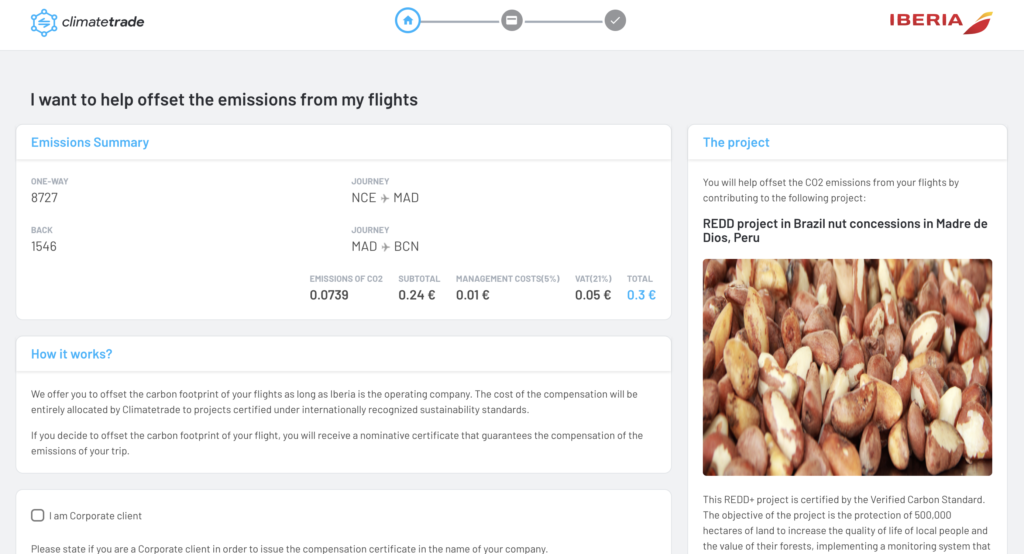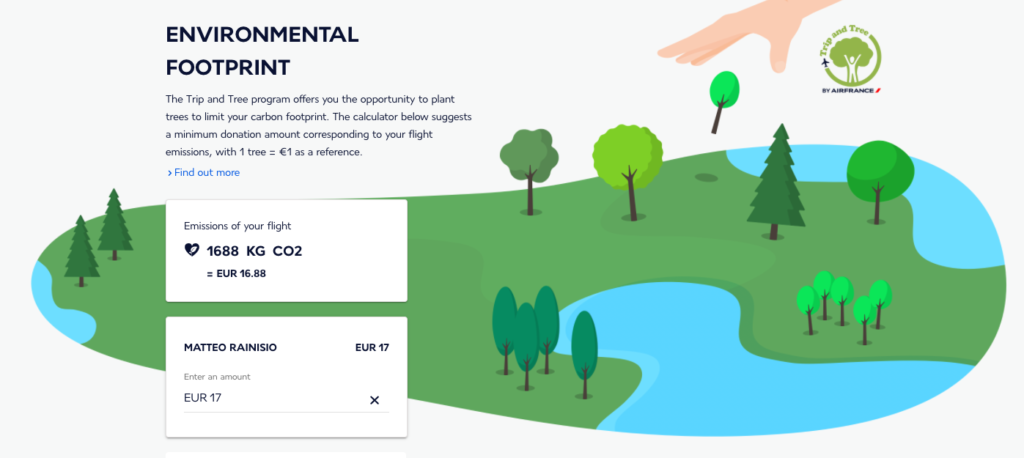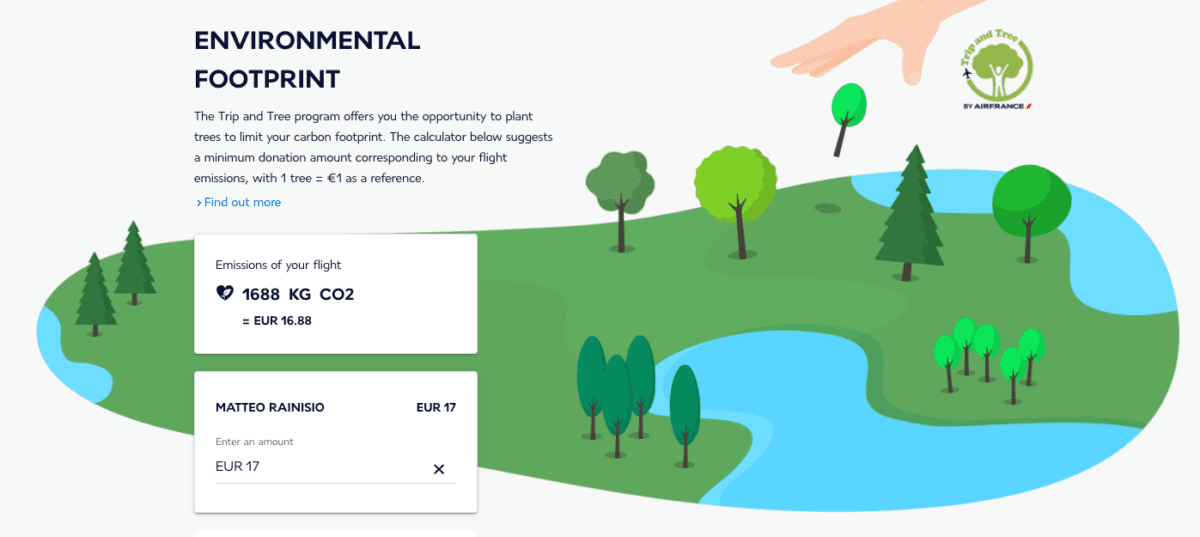How to "zero" the carbon footprint and lend a hand to the environment
More than 100 years ago the world's first commercial link took flight, it was a Paris-London, precisely on February 8 [...]
More than 100 years ago the world's first commercial connection took flight, it was a Paris-London, precisely on February 8, 1919. Since that time, commercial aviation has come a long way and traveled miles around the globe!
In this article:
Thanks to this very important step forward, we can now cross the ocean aboard ultra-modern Airbuses in comfortable seats or even beds, sipping a Cola or Champagne, with the option of even being able to take a refreshing shower and watch a movie on board.

Alas, there is a downside to this convenience...unfortunately, carbon and fuel residue emissions are unavoidable for a commercial flight, doing harm to our beloved planet that we so enjoy circling.
It is estimated that "frequent flyers," or frequent travelers, who are about 1% of the world's population, cause about half of the CO2 emissions from aircraft.
We at TFC zero our carbon foot print on every flight, so we believe we are doing our part and contributing to living on a cleaner planet.
What is the Carbon Footprint?
Translated into Italian: "carbon footprint," this is a parameter used to indicate the estimated greenhouse gas emissions caused by a product or service, in this case civil aviation.
There are actual calculators of man's ecological footprint depending on the type of medium chosen, you can take a look at them on the official website.
How to reset the carbon footprint to zero?
But what is the solution to avoid harming our planet? How to help airlines decrease if not zero out the carbon footprint of travelers?
Aircraft emissions are increasing rapidly, as much as 32% between 2013 and 2018, and are expected to double in the next 20 years.
The obvious solution is definitely to avoid taking the plane for short trips, preferring a more environmentally friendly means such as the train. If you just can't help but take the plane and you are a frequent flyer or simply want to be clear with your conscience, almost all airlines allow you to pay a small "emissions fee."
Lufthansa Compensaid
Lufthansa has launched the Compensaid campaign, which gives travelers two options to offset carbon emissions during their travel.
The first, through the use of synthetic fuel that nearly eliminates CO2 emission: by purchasing this sustainable fuel, up to 80% of carbon dioxide emissions into the atmosphere can be reduced.
The second solution, on the other hand, focuses on reforestation projects: through reforestation, trees will be able to capture excess CO2 having long-term effects.
Air France KLM Group
AirFrance and KLM's ambition is to reduce CO2 emissions by 20% during 2021. How? Through a program that will tend to modernize the fleet, reduce weight carried on board, and the use of sustainable biofuels to offset emissions.

British Airways and Corporate Responsibility
BA on its official website also says it cares about some important issues such as equality, diversity, and inclusion. Regarding environmental impact in the world of aviation, British Airways says it is investing in sustainable fuels, fuel-efficient propinerei, and the purchase of new, greener aircraft.
Over the past year, British has tried to offset emissions as best it can, but given the year that has just passed, it is already planning to update credits to offset emissions in the first quarter of 2021.
Iberia and the reforestation project

Iberia has initiated an interesting project that aims to help any company, airline or otherwise, zero its carbon footprint through a reforestation program.
As for individuals traveling with Iberia, on the other hand, they can integrate options that go with their tickets. For companies interested in participating in the reforestation project, Iberia provides a form on its official website that allows them to offset emissions through a certified VCS or Verified Carbon Standard project that is located in Peru.
Ryanair and the monthly emissions report
An interesting initiative of Ryanair is to provide a report, updated monthly, on Co2 emissions per passenger. The figure ranges between 67 and 69 grams per passenger per month, stating that this is 23% less than other large European airlines, such as Lufthansa, IAG, Air France-KLM, and EasyJet.

The figure is stuck at March 2020, which coincides with the full development of the pandemic, and since then it has been a period of uncertainty for Ryanair and all airlines but will resume counting soon.
Ryanair claims to be the No. 1 airline for carbon efficiency, the company also gives the opportunity for their customers to participate through a voluntary donation that will go to climate and environmental nonprofits. The partnerships are with First Climate and Renature Monchique, which have reforestation and environmental projects in Uganda and Portugal.
EasyJet does not charge compensation to travelers
Counter-trend for EasyJet, which does not charge its customers for Co2 compensation on their flight, but instead states that it pays, you out of pocket, in every ticket anyway.
EasyJet's main investments to reduce emissions are reforestation and combating deforestation in addition to using renewable energy for their facilities. The company claims to have decreased emissions by one-third over the past 20 years, thanks in part to the purchase of Airbus A320neo and A321neo, an energy-efficient and environmentally friendly aircraft.
- 6,000 Mile Registration Bonus
- Collect miles WITH EACH PURCHASE
- Your miles with no expiration*
- No fees for ATM withdrawals and foreign purchases
- Without having to change banks
- Autonomous card activation
- Multi-function mobile application
- Free travel insurance
- Free credit for up to 7 weeks
- Contactless Payment
- Mastercard® SecureCode



